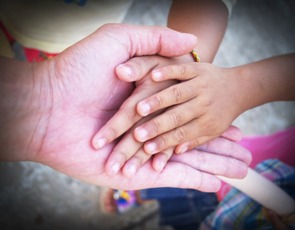Grandparents find challenges working with child protection and Work and Income
Mon 18 Sep 2017
Research about grandparents' experiences of raising grandchildren in Aotearoa New Zealand has highlighted significant difficulties in accessing ...

Research about grandparents' experiences of raising grandchildren in Aotearoa New Zealand has highlighted significant difficulties in accessing support from Work and Income New Zealand and Child, Youth and Family (now the Ministry for Vulnerable Children, Oranga Tamariki).
The 2016 Grandparent and Whānau Carer Survey was commissioned by Grandparents Raising Grandchildren Trust NZ. The survey involved more than 1000 people answering both quantitative and qualitative questions through online, paper and phone questionnaires. People who completed the survey included grandparents, great grandparents and other whānau members. Three quarters of participants were Pākehā and one third were Māori (multiple ethnicities could be selected).
The survey asked questions about a number of topics including family violence and experiences with Child, Youth and Family and Work and Income. Dr Liz Gordon of Pukeko Research has written an article and report summarising some of the findings from the research. Her article Experiences of grandparents raising grandchildren in getting income support from work and income offices in New Zealand (2017) focuses on grandparents' efforts to access the Unsupported Child Benefit. She found:
"Grandparents in this study frequently had interaction with both Work and Income and the state agency Child, Youth and Family, or CYF (now disestablished and replaced by the Ministry for Vulnerable Children Oranga Tamariki). Although both agencies fell under the umbrella of the Ministry of Social Development, the two agencies did not work together to support grandparent families and, as some of the findings of this study show, at times gave conflicting information."
Kate Bundle, Chief Executive of Grandparents Raising Grandchildren said:
“... the majority find the quality of the service dreadful. Some are even fearful of Work and Income staff and the whole experience and some even give up rather than put themselves through the stressful rigmarole.”
The initial report from the research published in 2016, The empty nest is refilled: The joys and tribulations of raising grandchildren in Aotearoa, provides a more extensive summary of the research. This report also includes findings from questions about experiences with family violence.
The main reasons respondents reported for children coming into their care included: drug addiction (43%), domestic violence (40%), family breakdown (40%), neglect (40%), parent unable to cope (38%) and alcohol abuse (25%). Many had multiple reasons. Other reasons included death of a parent, parent in prison, child abuse and health/mental health issues.
Key findings about caregivers' experiences of violence and safety in their home include:
-
64% reported they had been verbally assaulted by a family member of their grandchildren; some of these led to calling police and other agencies for help, restraining orders and trespass orders
-
Just under 5% reported they had been physically assaulted by a member of the child's family. Half of these were single assaults with a range of severity from minor incidents to strangulation
-
14% reported they had been physically assaulted by grandchildren in their care
-
61% reported they never felt unsafe at home, 22% reported that they felt safe now and 17% have felt unsafe in their homes
-
33% had safety plans for their home
-
42% of caregivers reported that the child in their care had witnessed abuse from parents/whānau towards the grandparents
Many families reported involvement with CYF and most sought legal guardianship through Family Court. A criticism was that CYF was involved initially to support grandparents taking care of the children but there was then no further support, or a lack of clarity about what support was available.
The report further detail on these issues as well as caregiver coping and stress, health and wellbeing of caregivers, financial issues including support from Work and Income, housing, accessing services, the health and wellbeing of the children, and parents' contact with the children.
The report states that further reports and summaries will be published, including information about experiences with the Family Court.
Related information
Media has reported that Auckland Action Against Poverty has raised significant concerns about Work and Income treatment of beneficiaries including a 'toxic culture' at Work and Income offices. Beneficiary advocates also expressed concern that staff are withholding information about benefits and that benefits are too difficult to access, after figures released under the Official Information Act showed 150,000 beneficiaries and low income families were not getting payments totalling $200m a year that they were entitled to.
Stuff has reported that the Ministry of Social Development is reviewing some of its 5500 frontline roles at Work and Income, StudyLink and other agencies.
A research project carried out with Massey University and Auckland City Mission looked at urban poverty, structural violence and welfare provision for 100 Families in Auckland.
Related media
Insight: The rub between Work and Income and beneficiaries, Radio NZ, 15.10.2017
When the state turned away: Sarah's story, Child Poverty Action Group, 21.09.2017
Harsh punishments for sole parents fuel child poverty, Child Poverty Action Group, 15.09.2017
Benefit sanctions actually linked to long-term welfare dependency, Newshub, 14.09.2017
WINZ staff accused of withholding entitlements, Radio NZ, 09.09.2017
'You have to choose between food and going to the doctor', Radio NZ, 06.09.2017
Auckland Action Against Poverty release election demands, Newshub, 03.09.2017
NZ poor suffering under punitive welfare system Massey uni study argues, Stuff, 20.07.2016
Punitive welfare a blight on the poor, Massey University, 30.06.2016
Image: Pixabay


